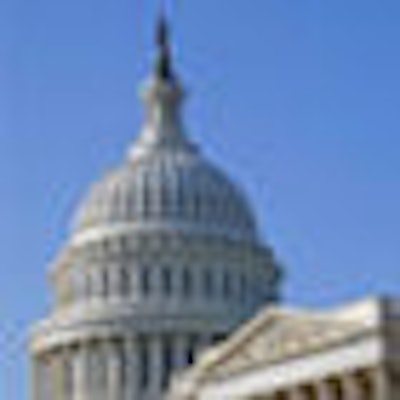
Leaders of four dental professional groups on March 31 asked an Institute of Medicine (IOM) committee to give their members a higher profile in government healthcare programs.
It was the second time in a month that these groups traveled to Washington, DC, in an effort to make oral healthcare a higher priority for the agency.
"The ADA believes that before HHS [Department of Health and Human Services] can take any action to improve oral health in America, it must establish a strong dental presence in all of its agencies," ADA President-Elect Raymond Gist told the Study on an Oral Health Initiative Committee.
The committee is one of two that the IOM has asked to investigate the nation's oral healthcare system. It is studying prevention and public education while the other committee, the Study on Oral Health Access to Services, is looking at access to care. But the two overlap in their missions.
Academy of General Dentistry
In his testimony, Academy of General Dentistry President David F. Halpern, D.M.D., reiterated the group's opposition to the licensing of midlevel dental providers.
“Many of my colleagues have open chairs that need to be filled.”
— David F. Halpern, D.M.D.
He argued that the government can best improve access to care problems not by increasing the number of dental professionals but by making dental offices and clinics more accessible. "Many of my colleagues have open chairs that need to be filled," he said. "We do not need a new nondental provider. We need to get the patient to the dentist and vice versa!"
Dr. Halpern outlined several recommendations:
- Require public schools to offer oral health programs.
- Offer community-based training for dentists that encourages them to practice in public health clinics and similar settings.
- Subsidize residencies for dental students in community and interdisciplinary care clinics.
- Increase loan repayment for dentists who work in underserved areas.
- Provide transportation and other support to help patients get to dentists.
And recalling the major theme of his March 4 testimony before the access committee, Dr. Halpern criticized the IOM for not including private practice dentists on the committees. It was a criticism echoed by the ADA and the American Academy of Pediatric Dentistry (AAPD), but the IOM has not made any changes in the committee membership since then.
American Dental Hygienists' Association
By contrast, Anne Battrell, R.D.H., M.S.D.H., executive director of the American Dental Hygienists' Association, gave a mostly upbeat assessment of the government's work on oral health.
"The IOM has brought together a group of individuals with the experience and depth of knowledge to look at oral health literacy from a broad perspective," she said. "The study is strengthened by the inclusion of dentists and dental hygienists, but it is important to acknowledge that those with healthcare expertise are key stakeholders in helping increase the oral health literacy of Americans."
Battrell said that HHS is already incorporating oral health into all its programs, and that the reauthorization of the Children's Health Insurance Program (CHIP) had brought more oral care to kids and would shed light on the question of midlevel providers.
Her prescription for the future was mostly to expand on existing oral health public education and bring dental care wherever children are found, including Head Start, Early Head Start, Women Infants and Children, and schools.
American Academy of Pediatric Dentistry
James J. Crall, D.D.S., Sc.D., president of the AAPD, painted a picture of an unfocused and sporadic government effort to improve oral health.
He called for more vigorous enforcement of Medicaid and CHIP regulations, more research on oral health literacy and disparities, more training of dentists, and more research on oral health in general.
And he gave a critical view of oral health provisions in the national healthcare reform legislation. "Unfortunately, there doesn't seem to have been anything substantial in the recent healthcare reform legislation to motivate states to strengthen their Medicaid dental programs," he said.
ADA
Some agencies have shown progress in tackling oral healthcare, Dr. Gist said, mentioning the Centers for Disease Control and Prevention and the Indian Health Service. But others have lost track of the issue because they lack a highly placed dental professional, he said.
Dr. Gist particularly criticized the leadership of the Agency for Health Research and Quality, the Centers for Medicare and Medicaid Services, and the Health Resources and Services Administration. Dentists had more prominent positions at these agencies in the past, with budgets at their command, but these have fallen by the wayside in the past decade, he said.
Dr. Gist also called on the committee to focus on the oral health problems of the elderly and disabled. "Statistics show this is a growing need," he said. "There should be a coordinated effort across all federal dental divisions to focus on advocacy, education, and research for vulnerable older Americans and those living with special healthcare needs."
Copyright © 2010 DrBicuspid.com



















